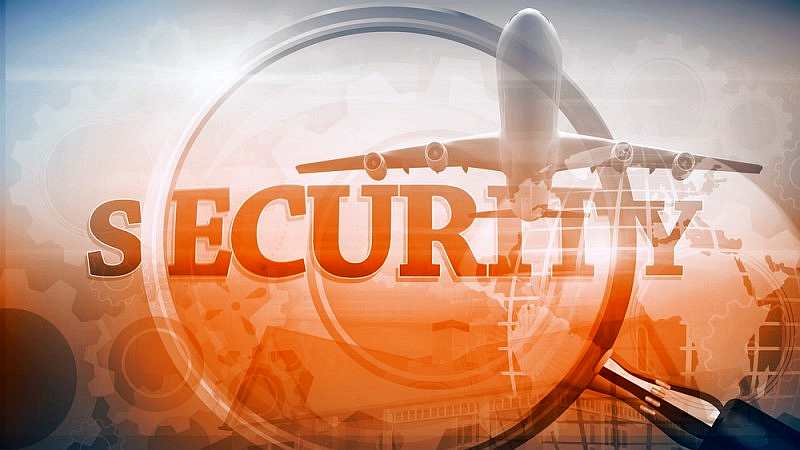ResearchAndMarkets.com has just released a report titled Aviation Cyber Security Market – Growth, Trends, and Forecast (2019 – 2024). According to the report, the aviation cyber security market is expected to register a CAGR of around 11% during the forecast period of 2019-2024.
The aviation sector has benefitting from the increasing level of connectivity and digitization across the value chain. The enabling technological advancements in the aviation sector are creating enormous opportunities to have better customer service, security, flight efficiency, operations and the passenger experience both on the ground and in the air.
- With the advancement of the technology and connectivity, the market has become prone and vulnerable to cyber-attacks of malicious malware activities targeting the aviation sector. For instance, in December 2017 major amount of sensitive security data was stolen at Perth Airport. The world’s biggest airline Cathay Pacific Airways Ltd. also suffered from data breach, with the hacker accessing personal information of more than 9.4 million customers.
- Detection and prevention are the most sought-after solution as these threats are becoming more stealth with every attack. Owing to such instances the corporates are trying to utilize services of domain experts thus, creating an opportunity for the market.
- A key driver for the market is the need for technological advancements in order to prevent the aviation sector IT infrastructure and networks from cyber-attacks. Further, as the aerospace sector moves toward the autonomy of spaceflight and is investing billions in developing aviation technologies, the need to protect the infrastructure becomes critical.
Scope of the Report
The aviation industry relies heavily on IT infrastructure for its ground and flight operations. The security of these airline systems directly impacts the operational safety and efficiency of the industry, and indirectly impacts the service, reputation and financial health. The report highlights cyber security in aviation sector by solution and application spanning from airline management, air cargo management, air traffic control management and airport management.
Key Market Trends
1. Airport Management Holds a Significant Market Share being the Passengers Contact Point
- With the number of air travel passengers increasing at a rapid rate year over year, airports continue to upgrade their infrastructure intelligence to improve passengers travel experience and support the growth. By enabling the exchange of real-time information on flights schedule, collaboration, and airport-wide process integration, airports significantly improve operational efficiencies, passenger services, and advanced security capabilities. These factors drive the adoption of It systems thus, impacting the market.
- According to SITA Air Transport IT Trends Insights Report, 2018, the airport and the airline have IT investment prioritized as cybersecurity, with 94% of studied airports planning to invest in the cybersecurity programs over the next three years.
- There is an increase in demand for cyber security in aviation in Asia-Pacific region. According to Indian Government’s Vision 2040, India need s approximately 200 commercial flights airports and an estimated investment of USD 40 to USD 50 billion to handle at least 1.1 billion passengers. Also, the civil aviation authorities of the world are emphasising to enhance and ensure safety and security standards across fast-growing aviation ecosystem.
- North America Holds the Largest Market Share
- According to the Cyber Security Breaches Survey 2018, in the United States, the state of California lost more than USD 214 million through cyber crime alone. Such cases creates a need for the cyber security in the country and impacts the demand.
- In the United States, the transportation companies and air carriers especially aviation sector, in particular, are incorporating more advanced cybersecurity programs that align with the National Institute of Standards and Technology (NIST) standards.
- The United States lays high emphasis on its aviation sector and invest mainly in research and development of advanced cybersecurity systems. For instance, 2019 President’s Budget includes USD 15 billion of budget authority meant for cybersecurity-related activities along with Airport and Airway Trust Fund having USD 32.4 million of 2019 budget.
- In addition, the new budget spending for Canadian infrastructure protection is marked at USD 144.9 million over five years including Canada’s critical cyber systems including sectors in the finance, telecommunications, energy and transport sectors.
Related story: 5 things airlines can do to prevent incidents like the British Airways data breach
Competitive Landscape
The competitive rivalry in the market is high among the dominant market players such as Cisco Systems, Inc. and Thales Group among others. There is significant research and development spending being done by the market vendors to improve the offering on a continuous basis. Version upgrades with enhanced capabilities differentiate the market offerings. The market is experiencing collaborations, mergers and acquisitions to enable stronger technical capabilities and wider applications.
- In April 2019 – Thales Group acquired a software security company Gemalto for USD 5.4 billion. It plans to create a new division, to be named as digital identity and security, for redefining its divisions as aerospace, space, ground transportation, defense and security, and digital identity and security.
- In October 2018 – Cisco acquired Duo Security to integrate its network, device and cloud security platforms. Duo’s zero trust authentication and access products has helped the company to let its customers to securely connect users to any application on any networked device.









